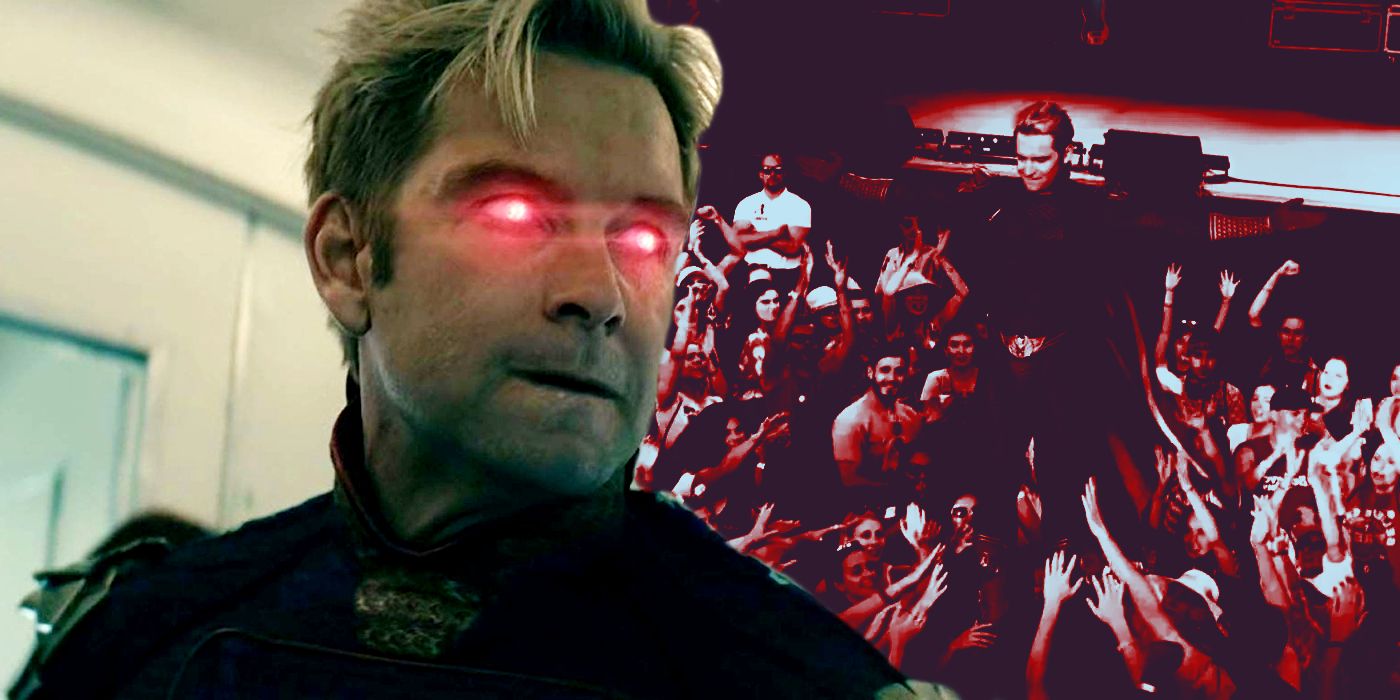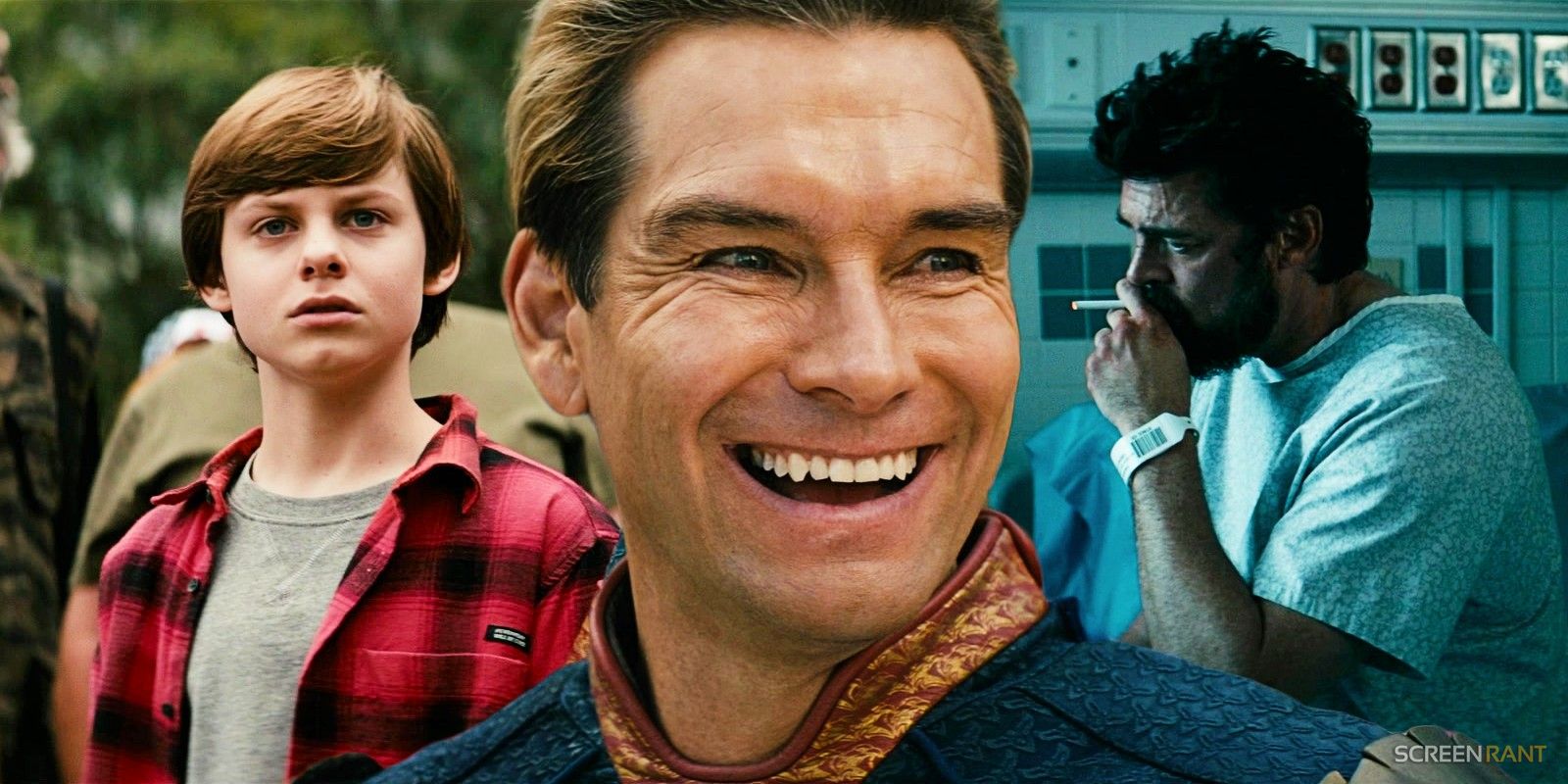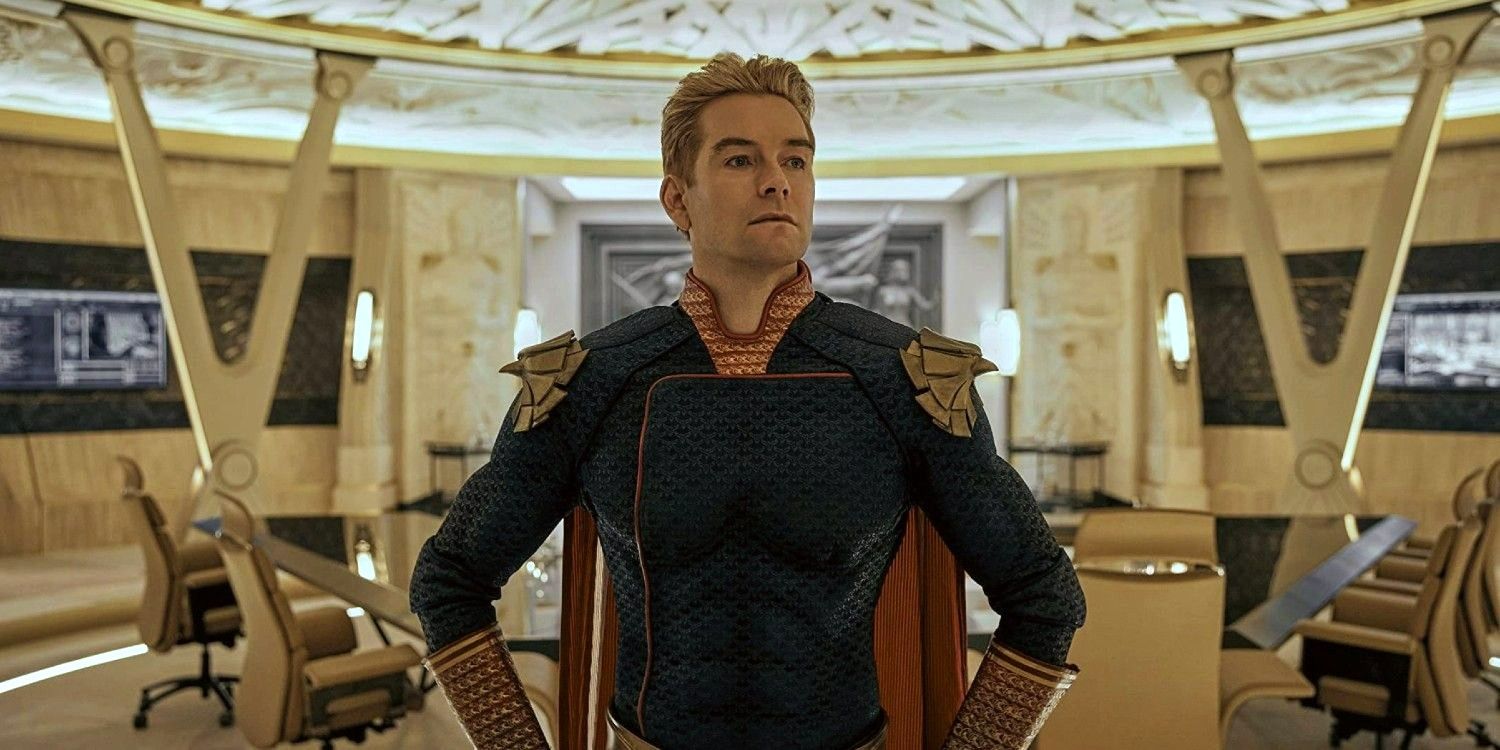While The Boys has made Homelander one of the scariest villains in television history, not everything that makes the character so chilling is rooted in his dark parody of Superman. The Boys is a satirical superhero series that uses the tropes of comic book stories to take aim at real-life institutions like politicians, celebrity culture, and corporate malfeasance. However, some of the best satire in The Boys is only tangentially connected to the show’s origins as a parody of superhero tropes. The Boys used the Deep to satirize Scientology and Stormfront to parody right-wing reactionaries online, allowing the series to extend its focus past the superhero genre.
Similarly, Starlight’s treatment by the Seven in The Boys season 1 was an extremely dark satire of the harassment that routinely occurs in elite corporate and media circles. While this storyline was made darker by the fact that superheroes were involved in the cycle of power-centric abuse, the plot would have made as much sense in a series about a corrupt corporation or a political machine. This is also true for most of the characters in The Boys. Whether it is the comparatively heroic Starlight or the lethally unstable Homelander, the lead characters of The Boys are comparable to real-life figures even when stripped of their superpowers.
Homelander Is Scary Because He’s Based On Real Life
What makes Homelander such a uniquely threatening figure in The Boys is the fact that he is not just “evil Superman.” Homelander is scary because he’s grounded in reality. He is the exact kind of prejudice-fueled public figure that is seen all too often in real life, but with laser eyes and super strength. His father, The Boys season 3 villain Soldier Boy, is a super-powered spin on the right-wing “anti-crime” and “anti-Communist” crusaders of the ‘80s. Similarly, Homelander is an all-too-believable demagogue who relies on public support and fear mongering to maintain power as much as his superpowers themselves.
Homelander’s powers are almost an afterthought since they impact the plot of The Boys far less than his political machinations, his personal manipulation, and his use of blackmail, violence, and threats to control others. While Blue Hawk’s pro-police message may have been a more blatant parody of reactionary public figures, Homelander’s espousal of so-called traditional values is taken straight from the rhetoric of real-life fascists. The fact that he is a literal ubermensch and is almost impossible to kill as a result is only part of what makes Homelander such a threat. After all, Soldier Boy’s season 3 ending proved brute strength couldn’t get a super-powered mass murderer as far as political popularity.
Homelander Proves Why The Boys Is More Than Just “Superheroes Gone Bad”
While the appeal of The Boys can be boiled down to “superheroes gone bad,” the series does more than re-frame the darker elements of superhero stories. The Boys shines a light on the darker elements of the real world, from Blue Hawk beating unarmed civilians to Starlight’s ordeal at the hands of the Seven, to Homelander using influence, bribes, and blackmail to maintain public support despite his crimes. As a result, The Boys is as much a darker satire of reality as the show is a deconstructive take on comic book tropes.



